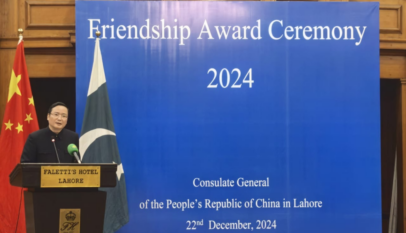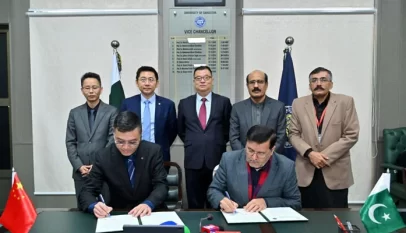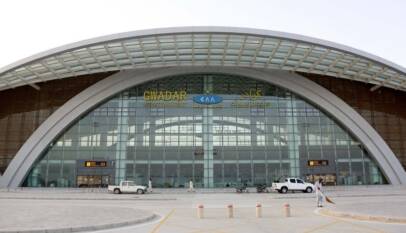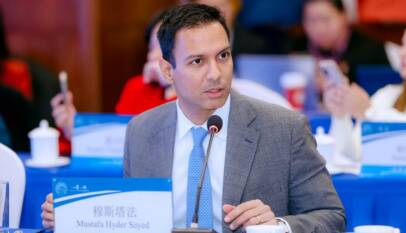BOI chairman meets Japanese envoy, discusses investment opportunities in Dhabeji SEZ
ISLAMABAD: The China-Pakistan Economic Corridor (CPEC) and special economic zones (SEZs) are open to countries for development and investment, Board of Investment (BoI) Chairman Atif Bokhari said on Friday during a meeting with Japanese Ambassador Kuninori Matsuda.
The BoI chairman briefed the Japanese envoy about prospect of Japanese-based developer for the Dhabeji SEZ in Sindh, and also invited enterprises to establish units in the economic zone. The chairman highlighted that Dhabeji SEZ’s location was very good given its close proximity to the Karachi Port.
Meanwhile, the Japanese envoy suggest that Islamabad should establish a commercial consulate or liaison body in Osaka – a centre of business clusters and small and medium industry in Japan – that would help improve bilateral trade and economic relations.
With a population of over 20 million, Osaka is a major financial centre and is among the largest urban areas in the world.
Responding to the ambassador’s proposal, Mr Bokhari said the BoI would coordinate with the Ministry of Foreign Affairs for the opening of the commercial consulate in Osaka.
Though Pakistan has a consulate in Osaka, it has no staff and is supervised by the embassy in Tokyo. Pakistan’s trade and investment counselor in Japan is based at the embassy in Tokyo, according to available information.
The BoI chairman invited Japan’s involvement in the government’s redevelopment plan for Karachi. The upgradation of existing system of water supply management, improving transport amenities including the Karachi Circular Railway and Keamari to Pipri rail line are opportunities for investment, he said.
On the occasion, Ambassador Kuninori stated that Japan is already helping in the development of water supply system of Faisalabad and may consider Karachi as well.
Pakistan’s fisheries sector was also discussed during the meeting. The Japanese envoy said the government and private sectors would be urged to invest in fisheries industry of Pakistan. Japanese were already engaged in the fisheries project like the Korangi Fish Harbour Project.
The Japanese envoy hinted at further expanding the Japanese auto-industry and textile industry investments in the country. The BoI chairman said that Japanese Auto Industry Standardisation in Pakistan may be brought up to next level.
During the meeting, pharmaceutical sector was also discussed. The BoI chairman noted that currently Active Pharmaceutical Ingredients (API’s) are mainly imported from India and China, however, Japanese pharma companies could cooperate with Pakistani counterparts in development of active pharmaceutical ingredients for medicines.
The Japanese ambassador showed interest in agriculture and food processing sectors. Pakistani agricultural products like mangoes, Basmati rice and dates are already being exported to Japan, however due to great travel distance, processing standards of these products can be improved, he said.
Mohsin Naqvi conferred China Consulate General Friendship Award
Chinese Consul General in Lahore, Zhao Shiren, presented the “China Consulate General Frie…












